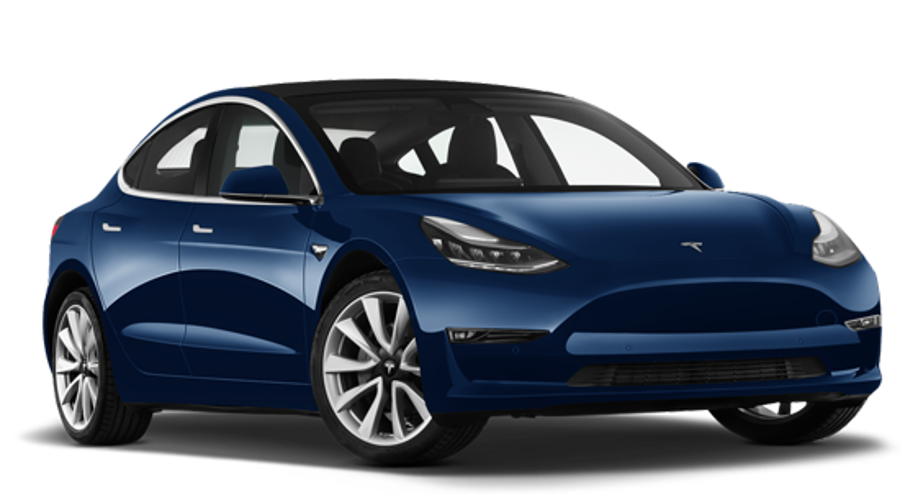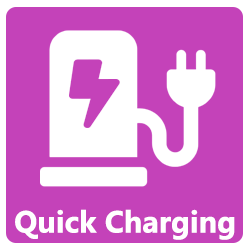Electric Car Leasing Explained
A guide to leasing an electric vehicle

An electric vehicle is one that's powered by an electric motor instead of (or in a hybrid, alongside,) a traditional internal combustion engine. It uses a rechargeable battery charged by plugging the vehicle into a charging point, accessing electricity from the grid. For more information on electric vehicles, charging them and why you should choose one for your next car lease, take a look at our guide below.

Types of electric vehicles
There are 2 types of electric vehicles – fully electric and hybrid. Fully electric vehicles, sometimes known as pure electric vehicles (EV) or battery electric vehicles (BEV), use a rechargeable battery to power the car rather than the traditional combustion engine.
As well as fully electric vehicles, there are several hybrid options. These include plug-in hybrids, mild hybrids and full hybrids, sometimes called self-charging hybrids. For more information on hybrid vehicles please take a look at our hybrid vehicle guide.
Why choose an electric car?
There are various reasons to choose an electric vehicle for your next lease. Take a look at our top ten below:
- Fully electric vehicles produce zero emissions so are better for the environment.
- As they have no emissions you won't pay road tax on fully electric vehicles that are listed at under £40,000 (subject to change in April 2025).
- Electric vehicles have lower overall running costs as charging them costs much less than filling up at a petrol station.
- There are fewer moving parts in electric vehicles so the cost of servicing and maintenance is generally lower.
- There are plenty of tax benefits and incentives you might be eligible for if you decide to lease an electric car, including government grants and lower Benefit in Kind (BIK) rates.
- Until December 2025, fully electric vehicles are exempt from the Congestion Charge in London, provided you register with TfL.
- It's getting easier and easier to charge electric vehicles with more carparks and retail centres designing electric parking areas with charging points. You can also install a charging point at home for overnight charging.
- The electric car market is growing and more brands are committed to designing zero emission vehicles, with an ever-expanding range of models for you to choose from.
- Electric vehicles make very little engine noise so you’ll have a quieter driving environment.
- There are apps available with maps locating all the UK's charging points, so you can plan your journey or find your closest charger very easily.
For a look at all the benefits of Electric vehicles just click here.




Is electric right for you?
When deciding if an electric vehicle is the right choice for you, there are a number of factors to contemplate.
Unlike with a petrol or diesel vehicle, an electric car can only travel a certain number of miles before you'll need to charge it. The ranges that electric models offer are usually less than their fuel powered counterparts, and the charging time is longer than filling up at a petrol station would be. This causes some drivers to experience range anxiety; the worry that they won't make it to their destination without having to charge the car. If you cover long journeys with little time between trips then you'll need to consider charging times when deciding if an electric vehicle would work for you.
To help you understand what might affect the range of your vehicle we've put together this useful article which covers everything from battery condition and vehicle weight through to the weather.
Electric cars are becoming more popular, prompting more charging points to be built all the time but there are still fewer than petrol stations. Charger maps can help you find charging points on your journey but you may still need to plan stops more proficiently than you would for a petrol or diesel car.
Compared to the few minutes it takes to fill up at a petrol station, charging an electric car takes longer. This can be inconvenient if you’re halfway through a journey and then need to wait for the vehicle to be charged before you can continue.
If you don't have off street parking then you won't be able to install a home charging point. If this is the case you'll need to look at other available charging points and how you'll manage charging the vehicle.
Although electric vehicles are growing in popularity, compared to petrol and diesel cars there are fewer models to choose from. Many brands only have one or two electric vehicles in their range compared to the many petrol and diesel variants, however manufacturers are looking to add more fully electric and hybrid options to their ranges in the coming years.
Charging
To charge your electric vehicle you'll need to plug it in, which can be done at a variety of public locations, including shopping centres, carparks and motorway service stations

If you want to take a look at available chargers across the UK then carwow's interactive map shows you all the public chargers available. Check it out by clicking here.
There are different types of connectors for charging and these vary between vehicle models and the power rating of the charging point.
Most vehicles have a type 1 or type 2 connector for slow and fast charging and either a CHAdeMO or CCS for DC rapid charging. Tesla Model X and Model S are the exception to this as they use a type 2 connection for rapid charging.
The time it takes for a vehicle to charge can vary for a number of reasons, including:
- The type of charging station.
- How much power the station can provide, which is measured in kW.
- How much power the vehicle can accept.
There are 3 power ratings of charging station in the UK; rapid, fast and slow. Click below to take a look at each type.
- There are 2 types of rapid chargers in the UK; AC (alternating current) and DC (direct current). AC chargers offer 43kW and DC chargers usually offer around 50kW. The only exception to this is Tesla’s DC Superchargers that offer 120kW.
- Not all cars are compatible with rapid chargers.
- These are not as common as fast or slow chargers.
- Offers between 7kW and 22kW of power.
- Usually uses a type 1 or type 2 socket.
- The most common type of charger in the UK.
- Up to 3kW of power.
- Use a type 2 socket or 3-pin plug.
- Charging via the 3-pin plug should only be used in an emergency.
As well as using public chargers many people also have a charging unit installed at home so that they can charge their car at a convenient time like overnight whilst parked in the garage.
For more information on charging an electric vehicle and the types of chargers, check out this article.
Hybrid Vehicles
Hybrid vehicles combine an internal combustion engine with an electric motor and so are often seen as a stepping stone between a petrol/diesel car and a fully electric version.
As hybrids don't all need to be charged they also require less adjustment to fit into your existing driving and parking habits.
There are 3 types of hybrids available in the UK: plug-in hybrids (PHEV), mild hybrids (MHEV) and full hybrids (HEV), sometimes known as self-charging hybrids.
We've got a separate guide on hybrid vehicles to help explain the differences between them and why you might consider a hybrid vehicle rather than a fully electric option.
Want to find out more about leasing a vehicle? Check our either our Personal Leasing Guide or Business Leasing Guide.
Or if you want to take a look at our top deals to find the right electric car for your next lease then head over to the Electric Offers page. You can also see great deals from Tesla, Polestar and many more here.